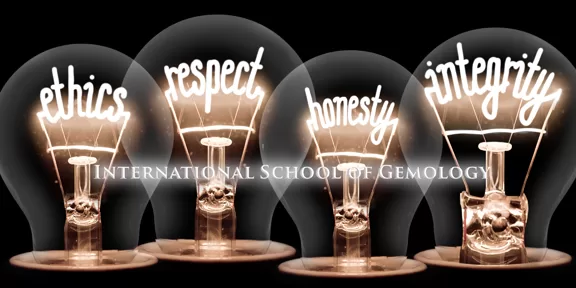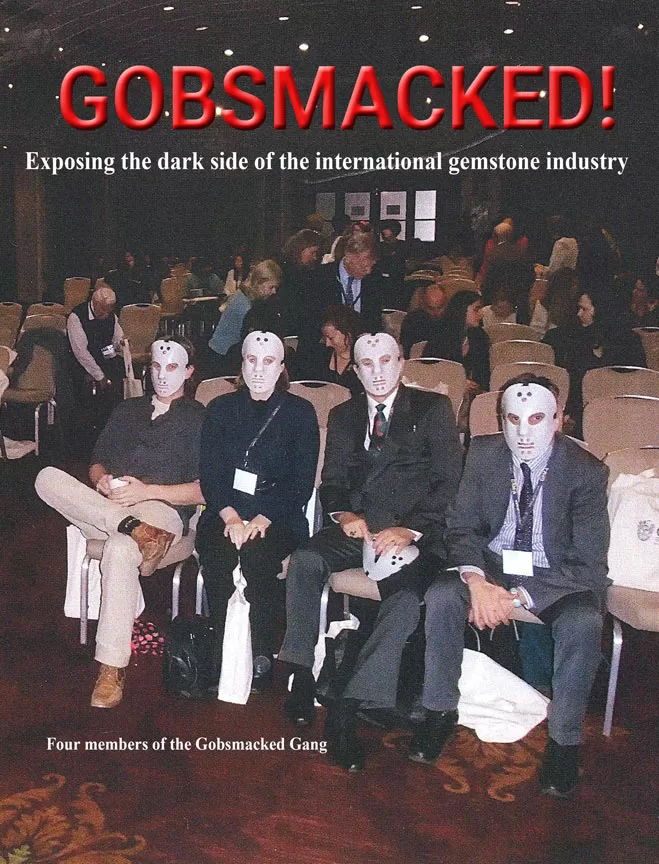Please sign in first
Not a member?

- Home
- Online Education Programs
- ISG Journey Thru Gemology
- RG/RGA Legacy Entrance
- ISG Credentials
- Frequently Asked Questions
- Registry of Graduates
- Careers in Gemology
- Important Program Information
- About the ISG
- Why is the ISG Tuition So Low?
- Testimonials of ISG Students and Graduates
- Meet Your Instructor for your ISG education
- ISG Best Online Gemology School
- Graduate Support Programs
- Ishihara Color Vision Test
- Privacy Policy
- Newsletters
- Turquoise Investigation by the ISG
- The Story of Petrol Quartz
- Top 5 Myths About Jewelry Insurance Appraisals
- The Story of Time
- The Story of Freshwater Pearls
- The Story of Agates and Jaspers
- Susan Bailey v. Frantz Jewelers, et al.
- The Story of Blue Topaz
- The Story of Tibet Andesine
- The Story of Oregon Sunstone
- The Story of Created Moissanite
- Identifying Lab Created Diamonds
- Black Diamond or Created Moissanite?
- Ebay, the GIA, and Section 230
- Lessons From the Angry Janitor
- Exposing the Truth about Lab-Created Diamonds
- AGTA Hobbles Dealers and Buyers
- Appraisers -v- Gem Labs…a Legal Imbalance!
- Understanding the Classification of Diamonds
- Cremation Diamonds: Insuring and Litigating
- Let’s Talk About Gemology Credentials
- Hometown Jewelers and the Force Majeure Clause
- Following the Critical Angle of Diamond Grading
- When Breitling Brought the Airmen Home
- Let’s Open a Refractometer
- Measuring the Energy of Light
- Quick Reference Guide to Sunstone
- ISG Seeing the Invisible Light
- Contact Us
Ethics in an Unethical World

Ethics in an Unethical World!
Virtually every professional license in the world requires a certain number of continuing education study hours in “Ethics” to renew the license. However, the study of ethics is noticeably missing in gemology schools. Today, I want to share the section on ethics from our Certified Gem Dealer course in hopes that it will give you pause to consider the importance of ethics education in our industry. Rj
Lesson One: Ethics in an Unethical World
Ethics. That’s a pretty tough concept in this industry. In spite of a lot of organizations throwing this term around, the truth is that it’s very difficult to maintain a real commitment to ethical selling in this day and age. Why? Because of two main reasons:
- There are no actual laws that dictate any rules of ethics in the jewelry industry.
- There are no legal or industry authorities with the power to actually enforce any rules of ethics on the industry if they existed.
Indeed, the term “business anarchy” seems to be the rule of the business since there are no rules for ethical operations and no authority with the power to enforce them if they did exist. As a result, anyone can get away with just about anything they want to if they are crafty enough.
Or can they?
As we experienced with the case of the Tibet andesine, it was not the industry that motivated an investigation; it was consumers. Consumers are the most important issue in this industry, not only because they are the end buyers of our products but because this industry only runs if we maintain a high level of confidence with the consumer level. If we lose the consumer’s confidence in our industry, we lose our industry.
In the case of Tibet andesine, industry leaders such as the GIA, AGTA, ICA, Jewelers Vigilance Committee, and others turned a blind eye to consumer concerns because these organizations were involved in the problem. Tibet andesine was a Chinese-produced, diffusion-treated feldspar sold as all-natural to over 150,000 television shopping customers, totaling over $150 million in sales. The main industry office involved was the AGTA Gem Trade Lab, which issued many certificates certifying the material as natural and untreated. The other main players in the Tibet andesine fiasco read like a “Whose Who” of the gemology industry. So these organizations were either slow to respond or failed to respond at all to consumer complaints about the Tibet andesine being sold on the television shopping channels.
The result was that only by a very loud outcry from consumers demanding answers did we ever get a truly proper investigation and report on the true nature of this Tibet andesine fraud.
This example is a primary reason ethical selling in this business can be so difficult. When those who tout themselves as the “industry authorities” are the very people perpetrating fraud or, at the least, allowing it to happen due to their own lack of action, then the industry as a whole becomes tainted in the eyes of consumers.
More important, however, is the fact that despite the industry “authorities” at the very highest levels working to protect or support those involved with this scheme, consumers were demanding answers that got results anyway. Consumers demand ethical selling of products. Nothing will lose us our industry faster than this industry, allowing more cases and situations to occur, as happened with the Tibet andesine fiasco.
However, with the very highest levels of this industry turning a blind eye to the problems of ethical selling, how does one try to sell ethically in an unethical industry? How do you compete fairly in a market that, by definition, has no fair market rules for dealing?
The answer may be far simpler than you think.
We are not saying it’s easy.
We are not saying it’s simple.
But here are some viable answers to this issue….
The first part of dealing with unethical dealers is to understand why dealers sell with no concern for rules of fairness, ethics, or honesty:
Lack of Knowledge. It is no excuse, but there are many people in this industry these days who have no business being in this industry. Just because someone thought being in this business would be “cool” does not mean they should be here. New sellers have no experience with the longstanding rules of ethics by which this industry has operated for decades if not centuries. So, new dealers with no commitment to the long-term viability of this market face a huge problem with unethical selling.
Pure Greed. Let’s face it; some people don’t care who or how badly they hurt other people. If they can tell a lie and make a sale, they consider themselves ahead of the game. We have all known these people and had to deal with them. All they care about is money, and anything they have to do to get it is acceptable as long as they get their profits.
In both cases, the end result is the same: consumers and often other dealers get hurt because of stupidity, whether by untrained dealers who have no business being in this business or by unethical dealers who purposefully use deceptive trade practices to meet their needs.
Once you understand what you are up against, you can develop a planned marketing strategy that will allow you to deal ethically and win when confronted by these people in business situations.
The following will help you sell ethically in an unethical world. This is not the ultimate resolution for this problem as you will need to study and develop your own additions to this answer based on your unique experience and market requirements. But start with the following and use this as a foundation to build on your ethical selling efforts….
Lay it on the table. Proper disclosure of our gemstones is the single most important step you can take to instill customer confidence and maintain a long-term and viable gemstone business. When you talk about your gemstones, lay all of the information out there. Let the consumer make an informed decision based on the facts of the product. By properly disclosing what you are selling, your customer will establish a trust in you that unethical sellers can never offer. Tell the truth about your product. Let the facts speak for themselves. Your customer will thank you.
Don’t fear the truth. Realize that there are bad people out there and don’t be afraid to talk about that to your customers, be they other dealers or consumers. Only if we as an industry are willing to discuss the bad guys will our customers start to feel confident that someone is watching out for their interests. If our customers know that we are aware and not afraid to talk about unethical sellers, then they will have greater confidence in our commitment to ethical selling.
Share Knowledge. Share information with other dealers you know. Only by ethical sellers joining together to form a foundation of sharing and caring for this industry will we impact the unethical sellers. Share knowledge. Let others know about the problems you are experiencing. Get the word out when you see a new scam or undisclosed treatment going on. Above all, don’t be afraid to share your knowledge with others.
Make your voice heard in the industry. Big organizations like the GIA, AGTA, ICA, Jewelers of America, the JVC, and others need to understand how many gem dealers out there demand accountability within this industry due to their lack of ethics. The bad guys have been getting away with all of the undisclosed treatment scams primarily because not enough dealers in the grassroots of the gem industry have been willing to stand up and demand some ethical enforcement within these organizations. Join up, speak up, and make your voice heard for ethics.
In this day and age of computer-generated communications and selling, it is easy for just about anyone to become a gemstone dealer. It’s also easy for just about anyone to use any chicanery and unethical selling to dupe consumers at all levels….for a while. As we saw in the Tibet andesine scandal, the end result of unethical selling is not only the actual sale of bogus merchandise that counted in the hundreds of millions of dollars. The real result is the long-term distrust of the gem industry, which caused this fiasco for everyone in the gemstone industry. This kind of scam being allowed by anyone in the gemstone industry hurts us all. It is the legitimate, ethical gemstone sellers out there who are going to endure the long-term customer distrust of the industry and who will have to work very hard to win back this consumer trust in order to maintain the future of the industry. The unethical sellers of andesine did not have to worry about that. They made millions. The real damage was to you, the ethical seller. If you start today, you can help prevent another case like the Tibet andesine to ensure ethical selling in your markets.
Remember that ethical selling is not always easy. It’s sometimes difficult to sell a gemstone with honest representation when your competition uses deception and misrepresentation.
- Don’t be afraid to discuss gemstone treatments or provide full disclosure to your customers. They will appreciate the honesty and become long-term customers.
- Don’t be afraid to talk to your customers about the unethical practices. Make them aware of what is going on. Educate them on the actual market situations.
- Talk about your commitment to ethics and proper disclosure. Your customers will appreciate your openness and honesty.
- Work within your markets, community, and organizations to create a voice for ethics within this industry.
- Remember that the long-term health of this industry relies on consumer confidence. Never lose sight of that fact.
